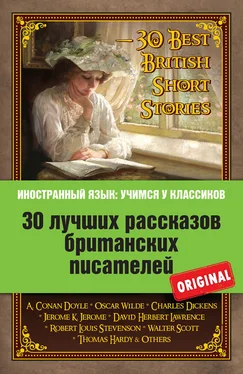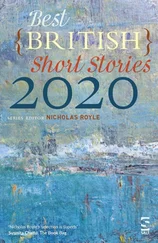‘I have been impressed, very impressed indeed. Even in my own field of limited observation – the opinion of an outsider, you may say – so often it happens – the trouble caused by an affirmation without sufficiently established data. I have seen lives lost, ruin brought about, endless suffering. Only last week, a young man – a brilliant career – almost shattered. People make statements without–’
He put the nuts back on the dish, and then, in an apparently irrelevant manner, he said abruptly:
‘Do you remember Wych Street, my lord?’
The Lord Chief justice grunted.
‘Wych Street! Of course I do.’
‘Where would you say it was, my lord?’
‘Why, here, of course.’
His lordship took a pencil from his pocket and sketched a plan on the tablecloth.
‘It used to run from there to here.’
Stephen adjusted his glasses and carefully examined the plan. He took a long time to do this, and when he had finished his hand instinctively went towards a breast pocket where he kept a note-book with little squared pages. Then he stopped and sighed. After all, why argue with the law? The law was like that – an excellent thing, not infallible, of course (even the plan of the Lord Chief justice was a quarter of a mile out), but still an excellent, a wonderful thing. He examined the bony knuckles of his hands and yawned slightly.
‘Do you remember it?’ said the Lord Chief justice.
Stephen nodded sagely, and his voice seemed to come from a long way off:
‘Yes, I remember it, my lord. It was a melancholy little street.’
Sabine Baring-Gould
Aunt Joanna
In the Land’s End district is the little church-town of Zennor. There is no village to speak of – a few scattered farms, and here and there a cluster of cottages. The district is bleak, the soil does not lie deep over granite that peers through the surface on exposed spots, where the furious gales from the ocean sweep the land. If trees ever existed there, they have been swept away by the blast, but the golden furze or gorse defies all winds, and clothes the moorland with a robe of splendour, and the heather flushes the slopes with crimson towards the decline of summer, and mantles them in soft, warm brown in winter, like the fur of an animal.
In Zennor is a little church, built of granite, rude and simple of construction, crouching low, to avoid the gales, but with a tower that has defied the winds and the lashing rains, because wholly devoid of sculptured detail, which would have afforded the blasts something to lay hold of and eat away. In Zennor parish is one of the finest cromlechsin Cornwall, a huge slab of unwrought stone like a table, poised on the points of standing upright blocks as rude as the mass they sustain.
Near this monument of a hoar and indeed unknown antiquity lived an old woman by herself, in a small cottage of one story in height, built of moor stones set in earth, and pointed only with lime. It was thatched with heather, and possessed but a single chimney that rose but little above the apex of the roof, and had two slates set on the top to protect the rising smoke from being blown down the chimney into the cottage when the wind was from the west or from the east. When, however, it drove from north or south, then the smoke must take care of itself. On such occasions it was wont to find its way out of the door, and little or none went up the chimney.
The only fuel burnt in this cottage was peat – not the solid black peat from deep, bogs, but turf of only a spade graft, taken from the surface, and composed of undissolved roots. Such fuel gives flame, which the other does not; but, on the other hand, it does not throw out the same amount of heat, nor does it last one half the time.
The woman who lived in the cottage was called by the people of the neighbourhood Aunt Joanna. What her family name was but few remembered, nor did it concern herself much. She had no relations at all, with the exception of a grand-niece, who was married to a small tradesman, a wheelwright near the church. But Joanna and her great-niece were not on speaking terms. The girl had mortally offended the old woman by going to a dance at St. Ives, against her express orders. It was at this dance that she had met the wheelwright, and this meeting, and the treatment the girl had met with from her aunt for having gone to it, had led to the marriage. For Aunt Joanna was very strict in her Wesleyanism, and bitterly hostile to all such carnal amusements as dancing and play-acting. Of the latter there was none in that wild west Cornish district, and no temptation ever afforded by a strolling company setting up its booth within reach of Zennor. But dancing, though denounced, still drew the more independent spirits together. Rose Penaluna had been with her great-aunt after her mother’s death. She was a lively girl, and when she heard of a dance at St. Ives, and had been asked to go to it, although forbidden by Aunt Joanna, she stole from the cottage at night, and found her way to St. Ives.
Her conduct was reprehensible certainly. But that of Aunt Joanna was even more so, for when she discovered that the girl had left the house she barred her door, and refused to allow Rose to re-enter it. The poor girl had been obliged to take refuge the same night at the nearest farm and sleep in an outhouse, and next morning to go into St. Ives and entreat an acquaintance to take her in till she could enter into service. Into service she did not go, for when Abraham Hext, the carpenter, heard how she had been treated, he at once proposed, and in three weeks married her. Since then no communication had taken place between the old woman and her grand-niece. As Rose knew, Joanna was implacable in her resentments, and considered that she had been acting aright in what she had done.
The nearest farm to Aunt Joanna’s cottage was occupied by the Hockins. One day Elizabeth, the farmer’s wife, saw the old woman outside the cottage as she was herself returning from market; and, noticing how bent and feeble Joanna was, she halted, and talked to her, and gave her good advice.
‘See you now, auntie, you’m gettin’ old and crimmed wi’ rheumatics. How can you get about? An’ there’s no knowin’ but you might be took bad in the night. You ought to have some little lass wi’ you to mind you.’
‘I don’t want nobody, thank the Lord.’
‘Not just now, auntie, but suppose any chance ill-luck were to come on you. And then, in the bad weather, you’m not fit to go abroad after the turves, and you can’t get all you want – tay and sugar and milk for yourself now. It would be handy to have a little maid by you.’
‘Who should I have?’ asked Joanna. ‘Well, now, you couldn’t do better than take little Mary, Rose Hext’s eldest girl. She’s a handy maid, and bright and pleasant to speak to.’
‘No,’ answered the old woman, ‘I’ll have none o’ they Hexts, not I. The Lord is agin Rose and all her family, I know it. I’ll have none of them.’
‘But, auntie, you must be nigh on ninety.’
‘I be ower that. But what o’ that? Didn’t Sarah, the wife of Abraham, live to an hundred and seven and twenty years, and that in spite of him worritin’ of her wi’ that owdacious maid of hem, Hagar? If it hadn’t been for their goings on, of Abraham and Hagar, it’s my belief that she’d ha’ held on to a hundred and fifty-seven. I thank the Lord I’ve never had no man to worrit me. So why I shouldn’t equal Sarah’s life I don’t see.’
Then she went indoors and shut the door.
After that a week elapsed without Mrs. Hockin seeing the old woman. She passed the cottage, but no Joanna was about. The door was not open, and usually it was. Elizabeth spoke about this to her husband. ‘Jabez,’ said she, ‘I don’t like the looks o’ this; I’ve kept my eye open, and there be no Auntie Joanna hoppin’ about. Whativer can be up? It’s my opinion us ought to go and see.’
Читать дальше
Конец ознакомительного отрывка
Купить книгу












